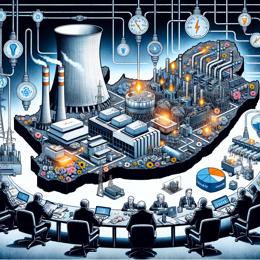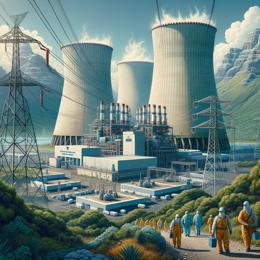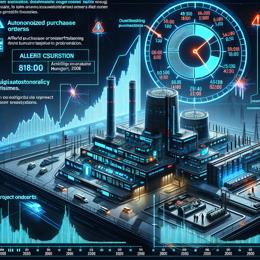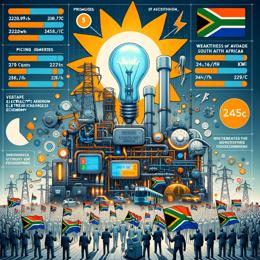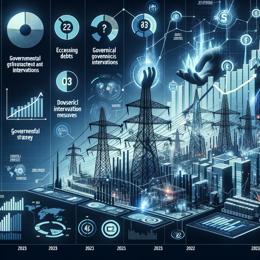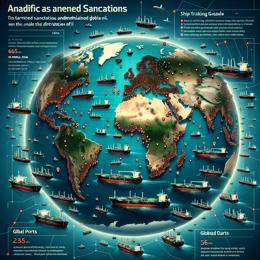Image created by AI
South Africa’s Energy Crossroads: The Imperative of Decentralised Renewables
South Africa, facing the dual challenges of an unstable energy grid and the global imperative to reduce carbon emissions, must decisively turn towards renewable energy solutions. Commitments to nuclear and natural gas expansions are proving to be both financially burdensome and impractical given their capital and time-intensive nature. As international discourse and practice shift towards cleaner energy, South Africa must embrace decentralised renewable systems that offer reliability, affordability, quicker deployment, and local empowerment.
The drawbacks of nuclear investments stem from the inherent long-term waste management challenges, accident risks, and extensive use of water in a drought-prone region. Similarly, the expansion of natural gas, while less carbon-intensive than coal, still contributes to greenhouse gas emissions and dallies with the specter of fossil fuel dependence.
South Africa has long struggled with energy security, often resulting in blackouts that hinder economic activity. The country’s heavy reliance on coal has only aggravated environmental degradation, despite having ample sunlight and wind resources that present a clear opportunity for change.
Decentralisation of South Africa’s energy sector means transitioning from the outdated, coal-centric model dominated by the state-owned utility, Eskom, toward a more distributed, renewable energy model. This approach can alleviate the frequent power outages experienced across the nation, reduce carbon emissions, and ensure a holistic economic upliftment.
Furthermore, a decentralised renewable energy system can significantly aid in combatting air pollution and its associated public health crises. It would also yield job creation and foster social equity by bringing energy sources directly into the hands of local communities.
To realize the vision of a decentralised energy future, South Africa needs to enact supportive regulatory reforms, overcome financial barriers, and invest in grid modernisation. Pioneering a resilient and inclusive energy framework will necessitate collaboration between the government, private sector, and wider society.
South Africa now stands poised to lead by example, showcasing how a country can leapfrog into a sustainable and people-centered energy future. The need to reorient its energy strategy cannot be overstressed; it's not simply an option, but an imperative.


